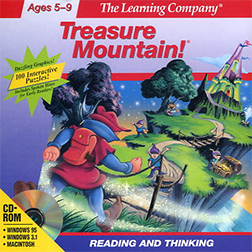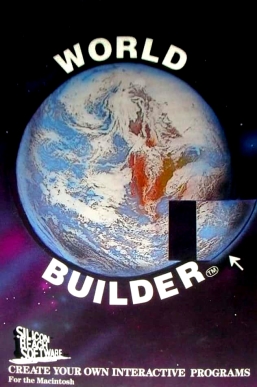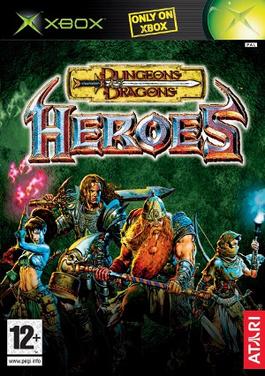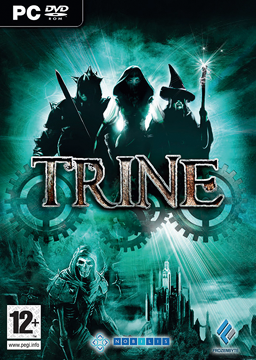
Microsoft Office, or simply Office, is a discontinued family of client software, server software, and services developed by Microsoft. It was first announced by Bill Gates on August 1, 1988, at COMDEX in Las Vegas. Initially a marketing term for an office suite, the first version of Office contained Microsoft Word, Microsoft Excel, and Microsoft PowerPoint. Over the years, Office applications have grown substantially closer with shared features such as a common spell checker, Object Linking and Embedding data integration and Visual Basic for Applications scripting language. Microsoft also positions Office as a development platform for line-of-business software under the Office Business Applications brand.

Return to Castle Wolfenstein is a first-person shooter video game published by Activision, released on November 19, 2001, for Microsoft Windows and subsequently for PlayStation 2, Xbox, Linux and Macintosh. The game serves as a reboot of the Wolfenstein series. It was developed by Gray Matter Studios and Nerve Software developed its multiplayer mode. id Software, the creators of Wolfenstein 3D, oversaw the development and were credited as executive producers. The multiplayer side eventually became the most popular part of the game, and was influential in the genre. Splash Damage created some of the maps for the Game of the Year edition. A sequel, titled Wolfenstein, was released on August 18, 2009.

Microsoft PowerPoint is a presentation program, created by Robert Gaskins and Dennis Austin at a software company named Forethought, Inc. It was released on April 20, 1987, initially for Macintosh computers only. Microsoft acquired PowerPoint for about $14 million three months after it appeared. This was Microsoft's first significant acquisition, and Microsoft set up a new business unit for PowerPoint in Silicon Valley where Forethought had been located.

Pathways into Darkness is a first-person shooter adventure video game developed and published by Bungie in 1993, for Macintosh personal computers. Players assume the role of a Special Forces soldier who must stop a powerful, godlike being from awakening and destroying the world. Players solve puzzles and defeat enemies to unlock parts of a pyramid where the god sleeps; the game's ending changes depending on player actions.

Star Wars: Dark Forces is a first-person shooter video game developed and published by LucasArts. It was released in 1995 for MS-DOS and Macintosh, and in 1996 for the PlayStation. The story is set in the fictional Star Wars expanded universe and begins shortly before the original Star Wars film, before flashing forward to a year after the film's events. The game's protagonist and playable character is Kyle Katarn, a mercenary working on behalf of the Rebel Alliance who discovers the Galactic Empire's secret Dark Trooper Project, which involves the development of a series of powerful new battle droids and power-armored stormtroopers.

Number Munchers is a 1986 video game and a spin-off to the title Word Munchers. It was made by MECC for Apple II, then ported to DOS and Macintosh in 1990. The concept of the game was designed by R. Philip Bouchard, who also designed The Oregon Trail. Two versions of the game were released being the Consumer Version and the School Version. After The Learning Company acquired MECC, the game was rebranded as "Math Munchers".

Shadowgate is a black-and-white 1987 point-and-click adventure video game originally for the Apple Macintosh in the MacVenture series. The game is named for its setting, Castle Shadowgate, residence of the evil Warlock Lord. The player, as the "last of a great line of hero-kings" is charged with the task of saving the world by defeating the Warlock Lord, who is attempting to summon up the demon Behemoth out of Hell. Later that year, a color version of the game was released for the Amiga and Atari ST, and in 1989 for the Nintendo Entertainment System.

Dragon Quest VIII: Journey of the Cursed King is a role-playing video game developed by Level-5 and published by Square Enix for the PlayStation 2. It was released in Japan in 2004, in North America in 2005 and PAL regions in 2006, making it the first main series installment released in the PAL region. It is the eighth installment of the Dragon Quest series and it is the first English version of a Dragon Quest game to drop the Dragon Warrior title. A version of the game for Android and iOS was released in Japan in December 2013, and worldwide in May 2014.

Dark Castle is a 1986 platform game for Macintosh published by Silicon Beach Software, later published by Three-Sixty Pacific for other platforms. It was designed and illustrated by Mark Pierce and programmed by Jonathan Gay. In Dark Castle, a young hero named Duncan tries to make his way to the evil Black Knight, dodging objects as well as solving occasional puzzles.

Silicon Beach Software, Inc., was an early American developer of software products for the Macintosh personal computer. It was founded in San Diego, California in 1984 by Charlie Jackson and his wife Hallie. Jackson later co-founded FutureWave Software with Jonathan Gay. FutureWave produced the first version of what is now Adobe Flash. Although Silicon Beach Software began as a publisher of game software, it also published what was called "productivity software" at the time.

Castle of Illusion Starring Mickey Mouse is a 1990 platform game developed by Sega and released for the Mega Drive/Genesis. An 8-bit version of the game was later released for the Master System and Game Gear. The game follows Mickey Mouse on a quest to save Minnie Mouse from the evil witch Mizrabel. It is the first game in Sega's Illusion video game series starring Mickey.

Super Princess Peach is a platform video game developed by Tose and published by Nintendo for the Nintendo DS. It was released in Japan in October 2005 and worldwide the following year. Super Princess Peach is the second game to feature Princess Peach as the only main playable character after the game Princess Toadstool's Castle Run released in 1990 on the Nelsonic Game Watch.

Treasure Mountain! is an educational video game published by The Learning Company in 1990 for DOS, Windows and Macintosh. It teaches children aged five to nine reading, basic math, and logic skills. Treasure Mountain is the third installment of the Super Seekers series.

Realmz is a fantasy adventure and role-playing video game first developed and published by Fantasoft in 1994 for the Apple Macintosh as shareware. Fantasoft released a Microsoft Windows-compatible version in 1999, and a science fiction role-playing game based on the Realmz engine, titled New Centurions, in 2001. Realmz was originally written by Tim Phillips on a Macintosh IIsi; he also wrote four game scenarios, including the introductory scenario "City of Bywater". Other original scenario contributors were Jim Foley and Sean Sayrs.

World Builder is a game creation system for point-and-click adventure games. It was released in 1986 by Silicon Beach Software and had already been used for creating Enchanted Scepters in 1984. On August 7, 1995, developer William C. Appleton released World Builder as freeware.
Mac gaming refers to the use of video games on Macintosh personal computers. In the 1990s, Apple computers did not attract the same level of video game development as Microsoft Windows computers due to the high popularity of Microsoft Windows and, for 3D gaming, Microsoft's DirectX technology. In recent years, the introduction of Mac OS X and support for Intel processors has eased porting of many games, including 3D games through use of OpenGL and more recently Apple's own Metal API. Virtualization technology and Boot Camp also permit the use of Windows and its games on Macintosh computers. Today, a growing number of popular games run natively on macOS, though as of early 2019, a majority still require the use of Microsoft Windows.

Dungeons and Dragons: Heroes is a hack and slash video game with RPG elements. It was published by Atari Interactive and developed by the subsidiary's Hunt Valley development studio, exclusively for Xbox in 2003. It is set in the Dungeons & Dragons universe and is playable solo or with up to four players. Players take on the role of four reincarnated heroes brought back to life to fight their former nemesis, a wizard named Kaedin.

Trine is a side-scrolling, action platform-puzzle video game developed by Frozenbyte and published by Nobilis. The game was originally released for Microsoft Windows in 2009, and has since been ported to Linux, OS X, and game consoles. The game takes place in a medieval fantasy setting and allows players to take control of three separate characters who can battle enemies and solve environmental puzzles.

The App Store is a digital distribution platform for macOS apps, often referred to as Mac apps, created and maintained by Apple Inc. The platform was announced on October 20, 2010, at Apple's "Back to the Mac" event. Apple began accepting app submissions from registered developers on November 3, 2010, in preparation for its launch.

















